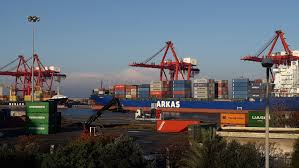An investigation revealed that importing in Syria is at the forefront of economic activities locally accused of fostering or exhibiting monopolistic practices, which vary depending on the type of imported commodity. Economic researcher Rasha Seroob categorized import monopolies in Syria into three types:
- State Monopoly on Essential Commodities: The state holds a monopoly on importing some basic commodities, such as wheat and oil. Ideally, this monopoly shouldn’t impact the scarcity or prices of these goods. However, sanctions on the Syrian regime have led the government to subcontract natural or legal persons to supply these goods on its behalf. According to Seroob, these contracting privileges were granted to certain individuals, undermining the intended benefits of the state monopoly, raising prices, and effectively transforming the state monopoly into a monopoly benefiting select groups. This has made it similar in effect to the second type of monopoly, the Nepotistic Monopoly.
- Monopoly through Import Rationalization: Under the guise of “import rationalization” and through mechanisms for implementing import financing—particularly by selling foreign currency to private sector importers through designated exchange companies (referred to as “the platform”)—the rationalization of imports has turned into a monopoly for a segment of specific importers. Although legally unproven due to the use of various names for obtaining import licenses, the process has effectively monopolized the import of many goods to certain favored individuals.
- Monopoly of Irregular Imports: This refers to the monopoly on smuggled goods. Despite restrictions and a significant reduction in the number of goods permitted for import, the Syrian market still sees a wide availability of all types of prohibited goods at nearly uniform prices across shops. This suggests the presence of a cartel-like arrangement that coordinates quantities and sets prices.
The investigation also noted that by the end of last year, 24,861 companies were registered with the Ministry of Internal Trade and Consumer Protection for import and export, with 18.9% based in the Damascus countryside, 18.2% in Damascus Governorate, 14.7% in Aleppo, 14.1% in Hama, and 13.3% in Lattakia. Data from the first ten months of the previous year showed that 4,752 importers were involved in importing 46 main materials, although this number reflects only those importing specific materials, as some importers handle more than one material and are therefore counted multiple times.
The investigation further analyzed the number of importers by commodity, classifying them using a three-digit system to better understand their proximity to monopolistic tendencies.
This article was translated and edited by The Syrian Observer. The Syrian Observer has not verified the content of this story. Responsibility for the information and views set out in this article lies entirely with the author.


